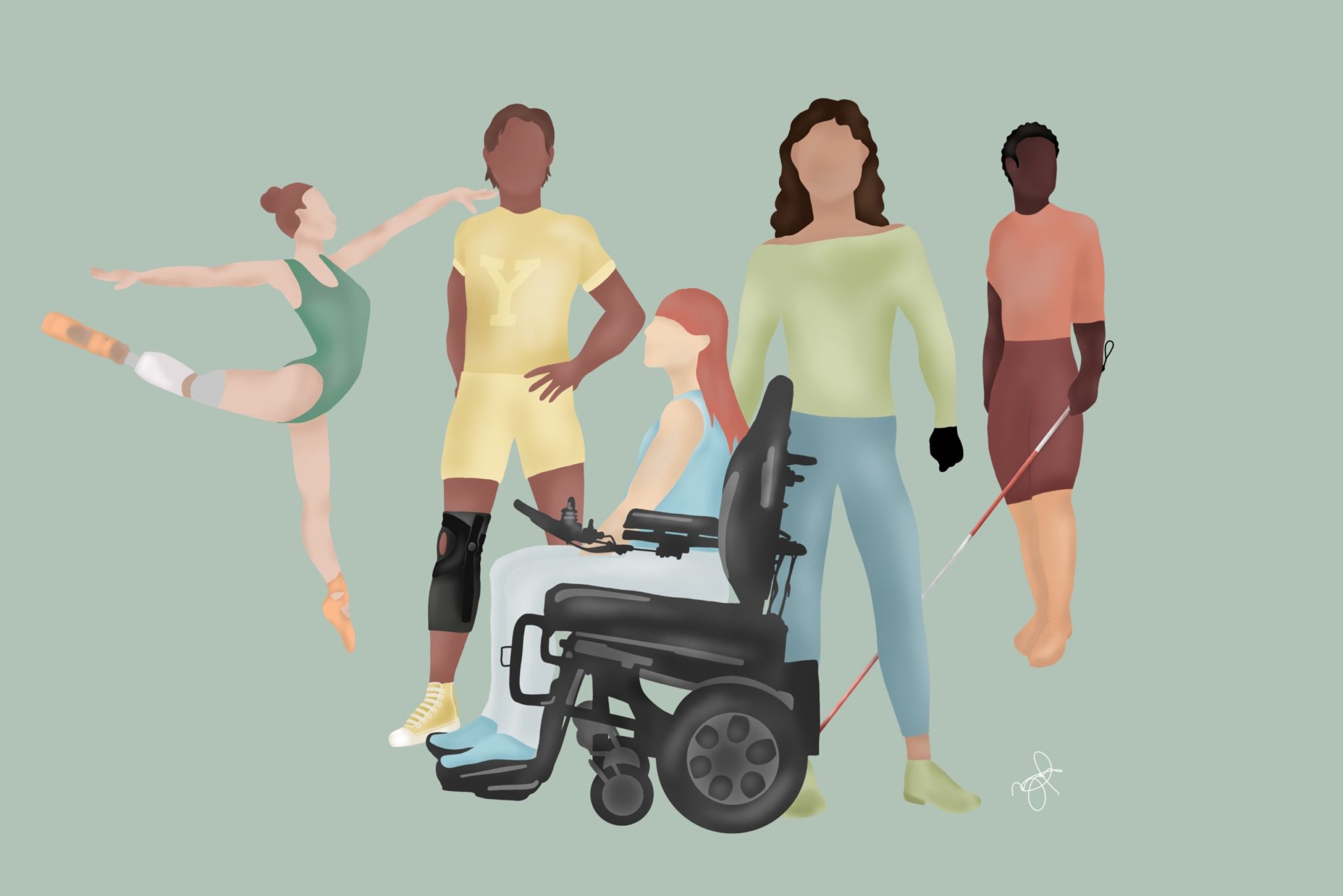Students push for Persons with Disabilities Cultural Center
Yale student disability activists and leaders continue a years-long effort to create a new cultural center for students with disabilities.

Zoe Berg, Photo Editor
Advocates for people with disabilities are working alongside University administrators with the aim of creating a cultural center for students living with disabilities. If established, a disability cultural house would become Yale’s fifth cultural center and the first in 29 years.
The push for the creation of a new cultural center began in the fall of 2019 with Disability Empowerment for Yale, which is an undergraduate advocacy and affinity organization for students with disabilities. DEFY’s then-president, Paige Lawrence ’21, and a collection of board members including Joaquín Lara Midkiff ’24, worked with the Yale College Council in drafting a proposal for adoption by the YCC Senate. DEFY worked with the YCC, the then-Resource Office on Disability (now Student Accessibility Services) and the Yale College Dean’s Office to get their proposal for the Persons with Disabilities Cultural Center off the ground.
“We knew it would be a long and difficult journey,” said Lara Midkiff. “One whose end likely none of us would see or enjoy.”
By spring 2020, DEFY met with Yale College Dean Marvin Chun and continued to meet with University administrators through the fall of 2020 and the spring of 2021, securing wins including an increase in Student Accessibility Services staffing, the creation of a YCC accessibility policy team, the establishment of a disability peer liaison program and the institutionalization of a Disability Peer Mentor Program.
For Lara Midkiff, these victories were the first indicators that the formation of a Persons with Disabilities Cultural Center was possible.
“These victories were game changing not only because they will go on to help and support generations of students with disabilities,” Lara Midkiff said, “but because they were the first indication that the University considered the disability community a community not only worth recognizing but supporting and celebrating.”
Still, a Persons with Disabilities Cultural Center has not yet been established on campus, and many in the University community are still advocating for its creation.
Chisom Ofomata ’25, the current president of DEFY, said the creation of a cultural center is integral to achieving a sense of belonging for people with disabilities.
“With a cultural center that provides a community and advocacy base, students with disabilities will have a greater voice on campus and a place they can call home,” Ofomata said.
In addition to creating a safe space for people with disabilities, Ofomata said, the new cultural center will aid in the recognition of disability as a sociocultural identity with its distinctive history, shared experience and culture.
“The University’s failure to acknowledge the cultural aspect of disability needs to be remedied,” Ofomata said. “In addition to creating a more inclusive campus, recognizing disability culture with the establishment of the PDCC will help students with disabilities feel empowered and facilitate necessary discussions with the student body.”
According to Disability Peer Mentor Program Coordinator Josephine Steuer Ingall ’24, “it is only a matter of time” before students with disabilities get a cultural house.
Ingall said there is a rapidly growing population of students registered with Student Accessibility Services, and therefore a cultural center is long-needed. A disability cultural center could resemble the LGBTQ Student Co-op, Ingall proposed, because like the queer community and other marginalized groups, people with disabilities need acknowledgment, support and visibility to counter centuries of discrimination and dehumanization, she said.
“I think the framing of disability as an identity rather than a medical condition is very similar in many ways to the transformation of how we’ve come to understand queerness; it’s not an aberration, it’s a natural part of human experience and variation,” Ingall said.
With the support of the YCC, DEFY continues to push for a cultural center alongside Middle Eastern and North African students who also hope to have a cultural house of their own.
Lara Midkiff, the Community Policy Director for the YCC, said that in addition to the establishment of the two new cultural centers, the YCC is working to add a MENA category to admissions applications and University data collection. Lara Midkiff added that the Asian American Cultural Center has recently opened a MENA room for community building thanks to advocacy.
“While these critical efforts continue, I have hope. …I see no evidence that the fight for belonging will slow, and so future successes are no longer a matter of possibility but one of time,” Lara Midkiff said.
The University of California, Berkeley and the University of Syracuse have cultural centers for students with disabilities.
Correction, Feb. 18: A previous version of this article said Brown University had a cultural center for students with disabilities. In fact, it does not. This article has been updated to reflect this.







